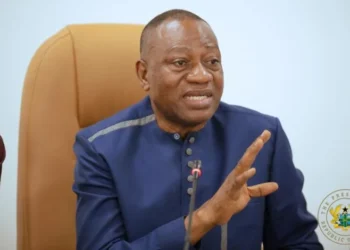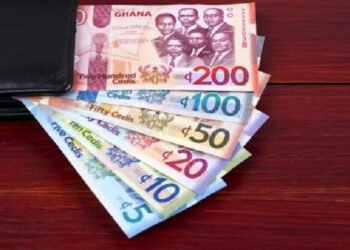At his first major media encounter on Wednesday, September 10, 2025, President John Dramani Mahama reassured Ghanaians that the cedi will only experience moderate depreciation of around 5% per annum in the coming months.
This, he explained, was not an indication of renewed instability but part of a natural adjustment process that reflects market dynamics.
The president revealed that the Bank of Ghana (BoG), which had heavily intervened in the first half of 2024 when the cedi depreciated by nearly 25%, has since scaled back its aggressive interventions as the currency shows signs of stabilizing.
This projection, many believe, signals renewed hope for Ghana’s economy, which has faced tough challenges with currency depreciation in recent years.
Prof. Baah-Boateng Applauds Stability Outlook
Reacting to the president’s remarks, the Vice Chancellor of Methodist University of Ghana, Professor William Baah-Boateng, described Mahama’s forecast as “encouraging and realistic.” He noted that if the cedi’s depreciation truly remains within the 5% band, Ghanaians could begin to experience the benefits of real stability.
“If the president aims to keep the exchange rate beyond 5%, then that is excellent. Now we are doing about GH¢12. When you take 5% of GH¢12, you are looking at about 60 pesewas. So, if the cedi hovers around 60 pesewas, then it is the same as stability. If we can work around that, then that is what we will all be happy about.”
Professor William Baah-Boateng
For Prof. Baah-Boateng, a 60-pesewa movement per year at the current exchange rate is not only manageable but also consistent with the pace of adjustment in healthy economies.
Inflation Gains and the Role of the Cedi
The economist further praised Ghana’s recent progress on inflation management, attributing it partly to the cedi’s appreciation and the seasonal availability of food during the ongoing harvest period.
“So far, we have done well when it comes to inflation because the appreciation of the cedi has contributed. Also, now we are in the harvesting season, and we have food in abundance.”
Professor William Baah-Boateng
The linkage between currency stability and inflation is critical. A stable cedi reduces the pass-through effects of imported inflation, helping to contain price surges in essential goods and services. Coupled with an improved food supply, Ghana has witnessed a slowdown in inflationary pressures, offering relief to households and businesses alike.
Festive Season Challenges Ahead
Despite his optimism, Prof. Baah-Boateng issued a word of caution. He highlighted the upcoming festive season as a potential source of pressure on the foreign exchange market. As demand for imports surges ahead of Christmas and New Year celebrations, the cedi could come under renewed strain.
“But what we have to work on is meeting the exchange demand that will come as a result of imports for the festivities. If the central bank can meet that, then we will be able to maintain it at that level.”
Professor William Baah-Boateng
This underscores the need for strategic foreign exchange management by the BoG to prevent excessive volatility during peak demand seasons.
Analysts note that President Mahama’s calm and measured forecast marks a shift from the panic-driven interventions of 2024. The decision of the BoG to scale back direct interventions reflects confidence in market forces to stabilize the currency with minimal manipulation.
By allowing the cedi to adjust naturally within a narrow band, Ghana sends a strong signal to investors, businesses, and the general public that the days of extreme instability may be easing.
The cedi’s outlook is not just about exchange rates; it is a litmus test of broader economic health. A stable currency fosters confidence among foreign investors, importers, and exporters, and reduces uncertainty for small and medium-sized businesses.
If Mahama’s 5% depreciation target holds, Ghana could see improved capital inflows, better planning horizons for businesses, and reduced pressure on household incomes. Coupled with efforts to enhance food security and diversify exports, this stability could lay the foundation for sustained economic recovery.
READ ALSO: GCB Bank Soars Nearly 10% to Lead GSE Gainers as Market Ends Without Losers























